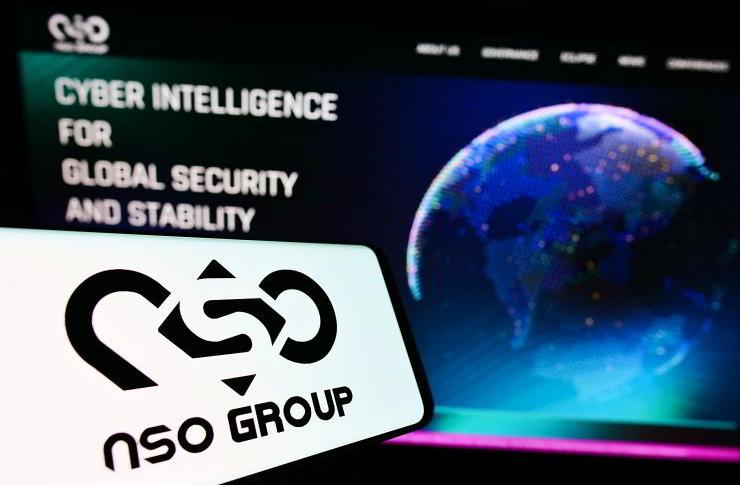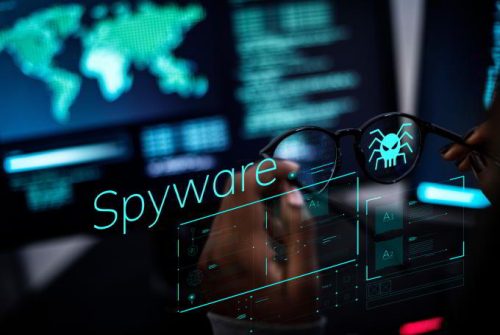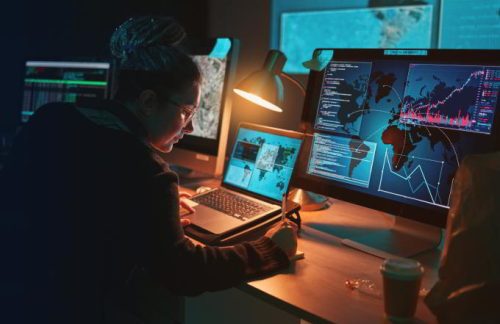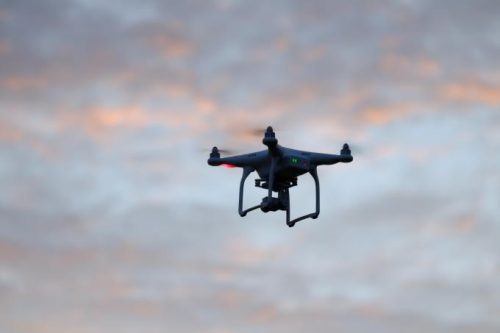Israel and Africa. Cyber diplomacy.

Israel is one of the world leaders in the production and export of digital surveillance technologies. To develop them, it can count on the only such laboratory in the world: the Palestinian territories occupied and militarized for decades.
The famous spyware Pegasus by the company NSO Group, for example, allows its users to collect and even manage data from a citizen’s device without the latter’s knowledge. The collected material can then be handed over to a third party. It has been called “the most powerful cyber weapon in the world” and can only be purchased by governments.
Last year, the value of Tel Aviv’s high-tech exports, a large part of which are surveillance products, was equal to 73 billion dollars: almost five times the resources obtained from the sale of conventional weapons.

“Spyware diplomacy” ends up providing authoritarian leaders with very powerful spying systems. Pixabay
But the real power of the large Israeli companies in the sector, NSO Group or Cellebrite, lies not so much in the money they earn, but in their diplomatic potential. These companies must obtain export licenses from the Israeli Ministry of Defence. This procedure ends up giving the government of Tel Aviv a great deal of influence and making the companies in question a real offshoot of Israeli foreign policy.
A former aide to Prime Minister Benjamin Netanyahu put it in writing not long ago: “With our Defence Ministry managing the circulation of these systems around the world,” the official said, “we will be able to exploit them and reap profits on the diplomatic side.”
The African strategy
This combination of foreign outreach and the sale of surveillance materials appears particularly relevant in Africa, a continent where Tel Aviv is urgently seeking allies at the United Nations in the context of the occupation of Palestine – compared by South Africa to apartheid – and, more recently, the destruction of Gaza. “NSO works with the Israeli state to support its international policy objectives; it is used as an inviting carrot to offer potential new friends,” observed investigative journalist Antony Loewenstein, an expert on the issue.

Cybersecurity, a woman writing global location info with map graphics. 123rf
Israeli investigative reporter Amitai Ziv, who has also covered the topic extensively, goes even deeper. “When Israel sells its cyber-surveillance to an African country, it can also do so to secure its vote at the UN. We are an occupying force; we need these votes.” ‘Spyware diplomacy’ ends up providing very powerful spy systems to authoritarian leaders, including African ones, who use them to crush dissent with serious consequences for journalists, human rights defenders and opponents.
Digital allies of repression
In 2020, the University of Toronto’s Citizen Lab, which monitors digital espionage against civil society, revealed how many governments around the world were using technology produced by the Israeli company Circles to read messages, and emails and even listen to phone calls of unsuspecting citizens.
Circles can identify the location of a cell phone anywhere in the world in a matter of seconds. Seven of the 25 countries where this system has been used are African. Nigerian intelligence has used it to spy on government critics and journalists. In Equatorial Guinea, this system has been used since 2013 and has contributed to the consolidation of President Teodoro Obiang’s power.
The situation has only gotten worse. 2021 has arrived and with it the Pegasus Project, an international investigative journalism initiative that has scanned 50,000 phone numbers suspected of being “infected” by Israeli spyware and shed light on the extent of digital espionage activities in Africa.
From Morocco to Kenya
Morocco has used Pegasus against government critics but also against the prime minister at the time, Saadeddine Othmani, and even King Mohammed VI himself. Rabat and Tel Aviv normalized their relations at the end of 2020, with the implicit clause of the US recognizing Moroccan sovereignty over Western Sahara. Which was then obtained. Rwandan head of state Paul Kagame also used Pegasus to investigate dissidents. South African President Cyril Ramaphosa may have also ended up among the victims of Rwandan surveillance, considered a possible profile to spy on in the context of diplomatic tensions between the two countries, according to some reconstructions.
Both Circles and Pegasus have also been used in Kenya, causing no small amount of concern among local human rights defenders, who now fear for their work and safety. Pegasus was then used in Ghana to spy on journalists and various political figures in the run-up to the 2016 general elections. And here comes the question: did Tel Aviv use the sale of spyware as a bargaining chip to obtain a favourable vote from Accra on observer status at the African Union, which is still pending?

Drone flying. 123rf
From spy to an observer
This question could also be asked of the governments of Côte d’Ivoire, Togo, Egypt, Cameroon, Uganda and Ethiopia. Israeli spyware has been used by these governments, who then supported Tel Aviv in its bid to become an observer to the AU. Sources who were present at the meeting of the African body’s heads of state in February 2022 confirmed that Israel had promised several African leaders military, surveillance and intelligence assistance in exchange for a commitment to keep the Israeli issue on the AU agenda.
Tel Aviv’s spyware diplomacy has far-reaching consequences in Africa. Governments do not seem very interested in addressing the issue, however. Civil society organisations and digital rights experts, however, have a different view. More than 150 human rights organisations have called on states to implement an immediate moratorium on the sale, transfer and use of surveillance technology until a human rights-compliant regulatory framework is in place. (Photo: Shutterstock/T. Schneider)
Suraya Dadoo



